Plant-based foods have broken into the mainstream, occupying more shelf space in supermarkets, area on menus, and attention in the media than ever before. This comes as flexitarianism (eating less meat) and veganism (consuming plant-based, slaughter-free products) reach their highest rates in recent years driven by various factors, not the least of which includes a growing awareness of the impacts of livestock production on our climate and environment (my colleague, Mary McCarthy, wrote an excellent post about the rise of plant-based diets last year). But do new alternatives to meat and dairy, such as pea protein burgers and oat milk yoghurt, signal a systemic shift in our food system?
The global food system, which currently prioritises profit and convenience over environmental impact and nutrition, is not sustainable, with negative impacts on biodiversity, human health and planetary health. We know it needs to transform – for the benefit of our climate, environment and public health, and to amend economic and power imbalances in our supply chains. It lies at the intersection of a number of global challenges, including malnutrition, animal welfare, land use change, water scarcity, sustainable livelihoods and climate breakdown, to name just a few. We also know that its transformation needs to be systemic, that is, to transform a system’s fundamental behaviours in concert so that a new, sustainable pattern can emerge. And at the core of the food system’s fundamental challenges lies protein.
Protein is an essential macronutrient in our diets that can come from a variety of sources, including plants and animal products. However, today, the vast majority (nearly two-thirds in the UK) of protein consumed in Western diets comes from livestock production, which globally accounts for 14.5% of global greenhouse gas (GHG) emissions: a key challenge in moving towards a sustainable food system. We need a “new normal” for protein that involves fewer and better animal products (produced with higher welfare, minimal waste and more sustainable feed and antibiotic use) in areas where overconsumption is widespread, and much more focus on diversifying protein sources.
The expanding range of plant-based products coming to market – such as the Beyond Burger, the Impossible Whopper, blended-meat products from Tyson Foods and a wide array of plant milks – is playing a significant role in making alternatives the ‘new normal’. A number of initiatives designed to increase vegetable consumption and encourage healthy, sustainable eating are also emerging, such as Peas Please and Food for Life – helping to normalise plant consumption, especially among children. Alternative proteins from insects or grown from stem cells in laboratories, are also helping to cultivate this “new normal”, with research and investment in both industries growing with every year – including the multimillion dollar investments in the cell-based meat start-up, Future Meat Technologies, and the insect protein producer, Flying Spark. In fact, a 2019 report from the global consultancy AT Kearney predicts that in 2040, 25% of meat-consumers will opt for ‘novel vegan meat’ and 35% of consumers will opt for cell-based meat.
The innovation in this field is impressive but can it have enough impact on land use to prevent or even reverse ongoing soil degradation and restore depleted groundwater resources? Can it support the creation of sustainable livelihoods across food supply chains, or is it creating new monopolies? In short, does it add up to sustainable, systemic transformation?
To answer this question and evaluate the state of the protein market, we have just published The Future of Food report which analyses the public commitments of 132 of the largest and most influential businesses that interact with protein, asking are businesses on track to deliver a sustainable protein system by 2040?
We found that an average of 55% of the businesses reviewed have increased their range of plant-based products for consumers. Food and ingredient manufacturers lead in this space with 79% expanding their plant-based product ranges.
But, few companies appear to be making wider strategic transformations alongside this innovation. Only 15% of companies are setting sustainability and nutrition as explicit goals and only 11% have emissions targets for their supply chains, meaning they may miss opportunities to lower emissions through the development of alternative feed or rebalancing product portfolios towards plant protein. Without businesses taking an integrated approach to protein, using their advocacy, investment and pre-competitive collaboration to address structural and cultural barriers to change and acting beyond innovation, a sustainable food system is not achievable. Product innovation is only part of the transition to a sustainable food system. This is evident in the sales of animal meat continuing to grow even in the past year – innovation is expanding the protein system, not transforming it.
So, how can we transform the system? First, we need to combat common barriers such as short-termism, a single focus on vested interests, resistance to ambiguity and uncertainty (which can lead to inaction) and reluctance to shift mindsets (our CEO, Sally Uren, wrote more on this). We need a fresh view of the future opportunities, not just the challenges.
Businesses are great at innovating new products to reach new audiences and stay competitive in global markets, so it makes economic sense for brands and retailers to pursue plant-based offerings in the expanding vegan and flexitarian consumer market. But is this innovation shifting protein onto a more sustainable path or simply taking advantage of the current growth opportunities of changing consumer habits? Are companies joining the dots on protein strategies to deliver better end outcomes for people and planet? An integrated strategy incorporates actions across key protein impact areas, looking beyond innovation to internally align a company’s strategy to influence structural change and mindsets.
So, while product innovation is key, it is just one of many essential areas of opportunity to scale-up impact and drive systems change, including:
- Create standards and ratings: develop metrics which encourage the shift to a sustainable, nutritious and affordable protein system.
- Develop business models for replication: create policies which align subsidies and production targets with sustainable protein goals.
- Reshape supply: collaborate and influence policy makers to create a vision for sustainable protein for your local context, with clarity on key priority issues.
- Create end-user demand: explore public procurement as a tool to incentive sustainable nutrition practices.
- Increase access to solution: support work that confronts the difficult trade-offs in the protein system, and invest in trialling new practices which can be scaled.
- Advocate on enabling context: engage policy makers and institutions on actions designed to deliver the broader cultural and structural changes required for a mainstream shift.
- Create catalysing platforms and intermediaries: identify and act on pre-competitive challenges, developing a shared vision of sustainable protein across geographies and initiatives to align efforts.
Ensuring a managed and just transition for those people whose livelihoods may be impacted by rebalancing protein in diets is also vital. Business, policy makers and NGOs can all help build the conditions for emerging livelihoods, including understanding and supporting the shift in skills and training required and helping the farming base cope with any stranded assets.
The good news is we are seeing the beginnings of wider transformation. The Future of Food research found that 46% of businesses analysed have at least one commitment to work towards increasing the sustainability of animal feed, although only 33% are currently working on sustainable feed beyond single issue commitments. Feed is critical in livestock production sustainability, responsible for the majority of land-use, freshwater consumption, chemical inputs and about half of the greenhouse gas emissions of livestock production. Working on more sustainable feed is an essential step towards better meat.
We’re also seeing early policy change reflecting a shift towards less meat and increasing access to (plant-based) solutions, including California passing a bill to include plant-based meal options in public institutions, and 14 global cities signing the C40 Good Food Cities Declaration committing to encourage citizens to adopt more balanced diets.
We’re also seeing pushback. In response to the diverse innovations-including the rise in plant-based products coming to market and the ongoing research into insect and cell-based protein-evidence-based constructive challenges are also being voiced around the role of sustainable livestock in the global food system and the importance of considering the local nutritional and environmental context. These are valid and important challenges to how the transformation will play out, and will help deliver a balanced, sustainable protein system. In the midst of these highly nuanced challenges, there is also a noisy PR backlash against the transformation, with calls from critics to restrict the language used for plant-based alternatives to meat and dairy, scenes on national television over a vegan sausage roll, and launching carrots made of meat. Our job is to work with other protein organisations and NGOS to navigate the nuances from the noise to help build the complex, sustainable, nutritious and affordable protein system the world needs.
Pushback is something we welcome: it’s a sure sign that the status quo is under threat, and evidence-based pushback in particular will play an important role in shaping the transformation of a complex global system.
Read more of our insights from The Future of Food here.
The views expressed in this report are not necessarily representative of Protein Challenge 2040 partners or other contributors to this report.
If you want to learn more about your role and the role of your organisation or sector in creating systemic change towards a sustainable future, for food and beyond, contact Sophie Robins: s.robins@forumforthefuture.org

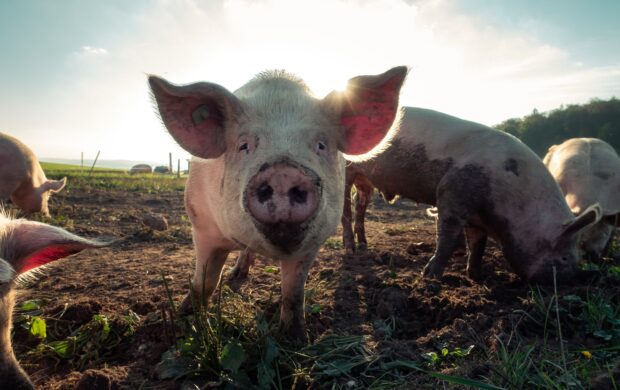

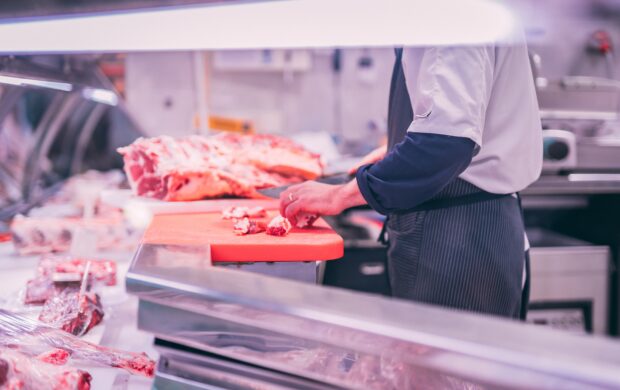
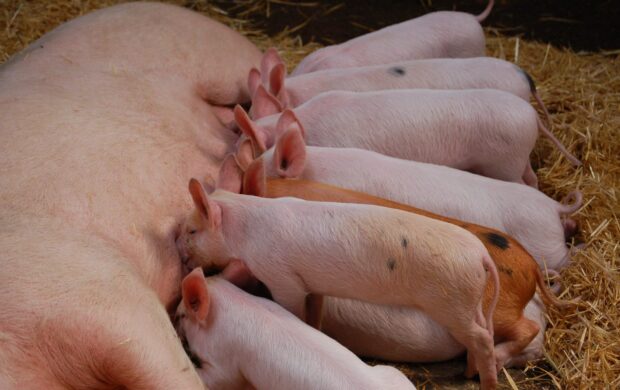
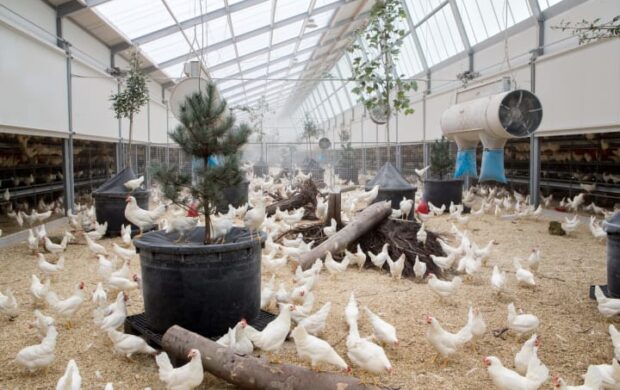




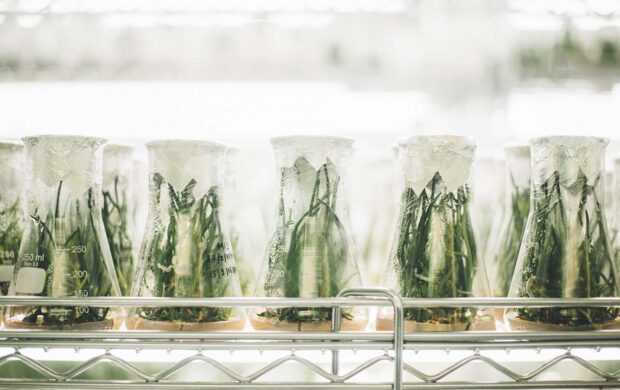
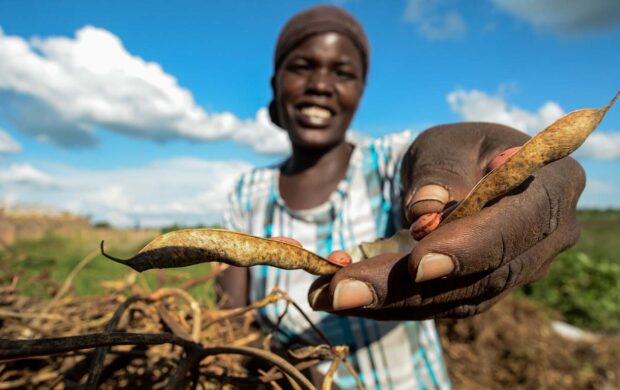

Join discussion